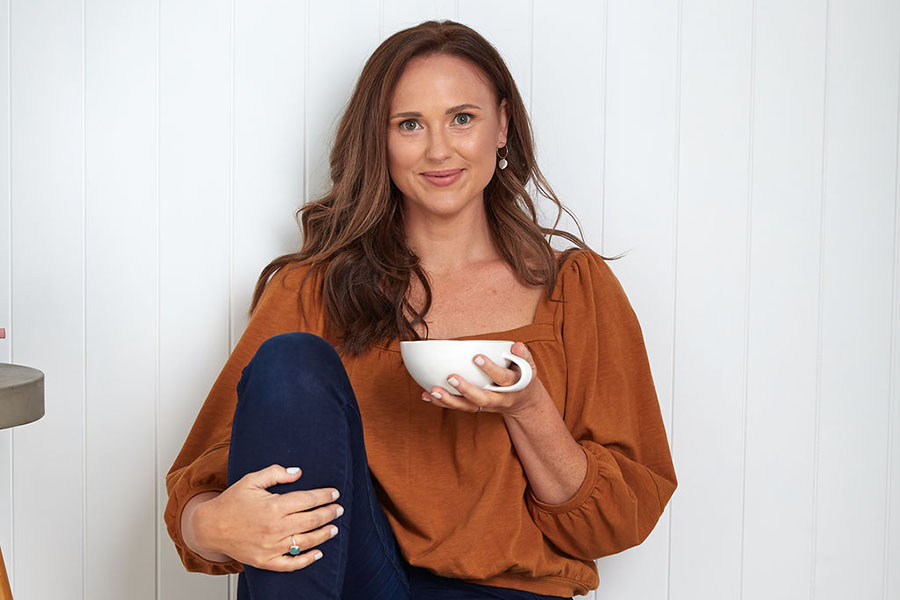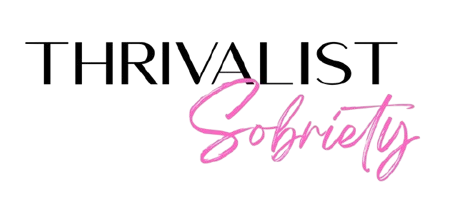
Lucy’s Story
In this blog Lucy shares her story of problem drinking and how she supported herself through the transition to the beautiful alcohol-free life she has today.
My alcohol story is not an uncommon one. Like most Australian Gen-Y’s and older, I started drinking in my early teens. It was just normal and everyone did it. Red UDLs to start, graduating up to Minchinbury ‘sparkling’, beer and goon bags. We drank to get drunk. And it was completely normal. Wild beach parties, roaming the streets from house party to house party, we had so much fun and I have no idea how nothing really bad ever happened to me (forever grateful).
Quite early on, it was obvious that I was a crazy drunk and I battled to find my off switch. I actually don’t think I’ve ever had one. From really early on in my drinking career, I felt like something was wrong with me, but I wasn’t sure what it was. I knew that after one or two drinks, I felt really great and more like myself than ever. But once that lever was pushed too far in the wrong direction, I would have no way of making my way back to the other side, no off-switch, and more often than not, very little memories the next day. Yet, back at this stage of my life in my late teens, there was absolutely no way sobriety was ever an option.
Growing up, more than once I overheard an adult using the phrase: “Never trust a man who doesn’t drink”. That stuck with me. If I chose to not drink, I was admitting I was the untrustworthy one. I was the one with the problem.
All through my late teens and 20’s I couldn’t ever fathom being a non-drinker. Getting drunk was just something that everyone did. How would I have fun, party, relax, de-stress or celebrate without it? There were periods of my life where I did feel I had more control over it than others. When things were tracking well in my world, when I was confident and in a good place, I normally had more control. When things were not great, I had more stress, anxiety, felt lonely or depressed, my drinking would spiral.
I had to hit my own version of rock bottom (which thankfully wasn’t as hard to recover from as a lot of my fellow sober community) to really work out once and for all that drinking alcohol was just not something I should partake in any more.
I was 35 years old, a mother of two beautiful kids and still not always in control of myself when I drank. Was I ever going to learn? I still can’t really say what it was that hammered home the last nail in the coffin, however December of 2018, I knew for 100% certainty that I wanted and needed to change. I no longer wanted to be that woman. Still, quitting felt so foreign and the journey ahead felt incredibly frightening and lonely.
On Jan 1st 2019 (my sober day 1) my sister sent me a link to a podcast interview of Ruby Warrington discussing her own sober journey and when I heard what she was saying, I suddenly didn’t feel so alone. I downloaded her absolutely beautiful book ‘Sober Curious’ on to my iPhone and spent the next 36 hours binge reading, profusely taking notes and feeling like I had discovered a new safe world to exist in, where I wasn’t so messed up and alone after all!
The journey from then to now has not been always smooth sailing. Sobriety takes work. Wonderful work, that I feel so grateful to have been able to do. But hard work. Work that I think everyone should undergo, not just those who choose sobriety.
Learning to love and respect myself and building self-care fundamentals has been the foundation of my sobriety. These daily fundamentals include mediation, exercise, trying to eat as well as possible (80/20 rule for me) building a strong connection with my higher-power, putting boundaries in place with relationships and people who triggered me to feel the urge to drink and educating myself around mental health, sobriety and self-development.
I’ve worked out the importance of developing a strong positive mindset, learning how to sit still with my feelings and emotions in order to understand where they were coming from, to process without numbing and to move through them stronger and wiser. I also try to spend more time being of service to others and helping others who need it. Getting out of my own head and spending more time in others.
In April of 2019, I had an idea. I really wanted to help other people on this journey. I knew my story wasn’t overly unique. I felt pulled to position myself in a way that could help others who may have felt as I did before I worked out what to do. I created a new Instagram account and began to share snippets of my story. I made new sober friends, one of whom introduced me to the Beautiful You Life Coaching Academy. I vividly remember having a moment of feeling like things were really working out exactly as they were meant to. I enrolled in the course after a few days of talking my husband around to the idea. I was beginning to feel like things were falling into place.
I am well aware of the fact that Life Coaching is one of those careers that is sadly still quite stigmatised. When I mentioned I was studying a Life Coaching course to an older colleague as he was driving me to the train station after a work event one evening, he responded ‘The only people who become Life Coaches are people who have never really made it in any other career’. I sat on that train ride home and really questioned my decisions. Was I one of these people? Was this what people would think of me? Was I a complete loser?
Thankfully, I left those thoughts on that train and have never looked back. Learning the coaching skills that I have learnt, becoming a Life Coach and witnessing my clients achieving their goals (I mean really, no bull-shit, actually transforming their lives) has more than proven to me 100 times over and most of my friends who I talk to about it, that Life Coaching is a powerful and incredible resource for anyone who needs support, a hand held, a gentle push or a fly kick in the right direction.

Post a comment